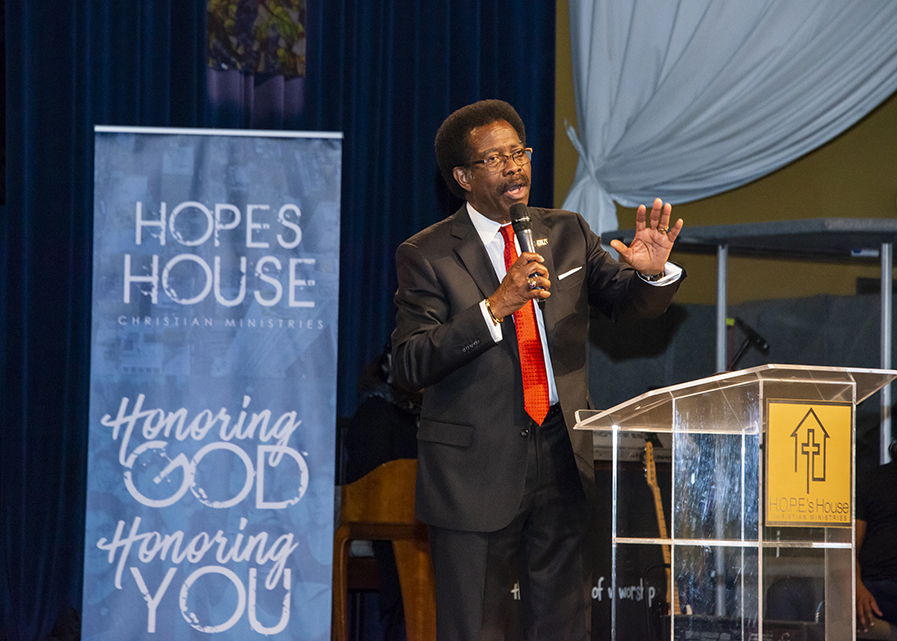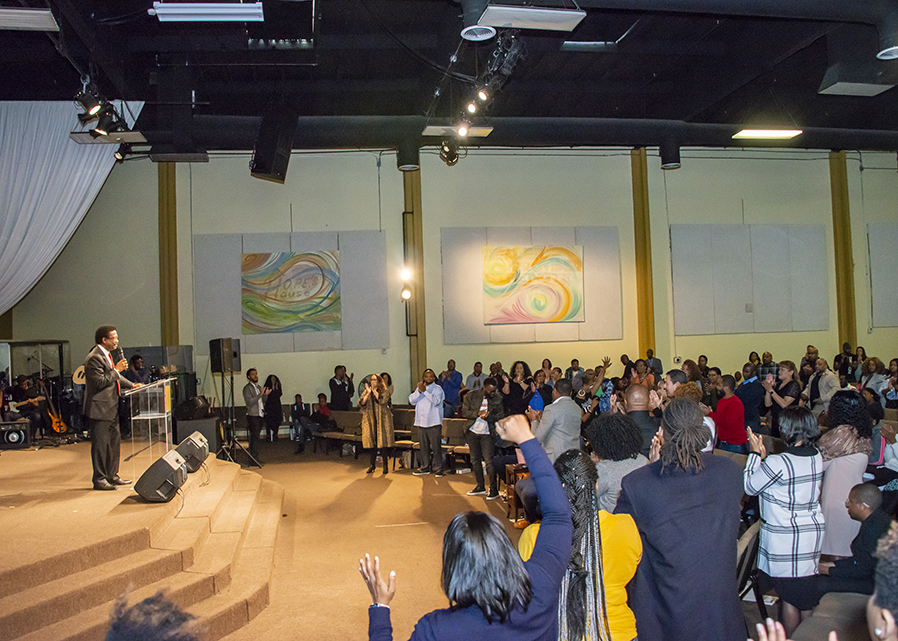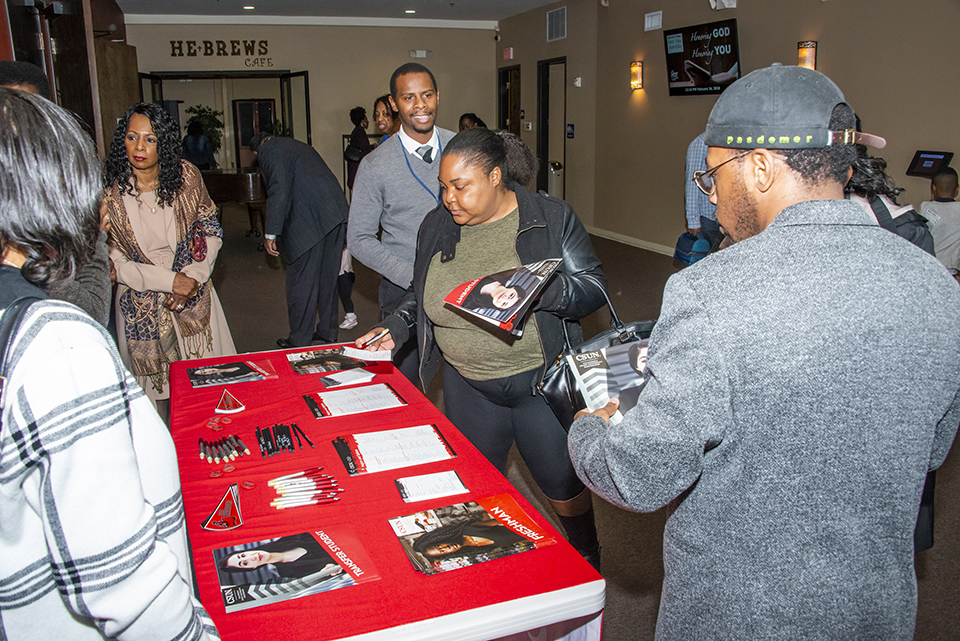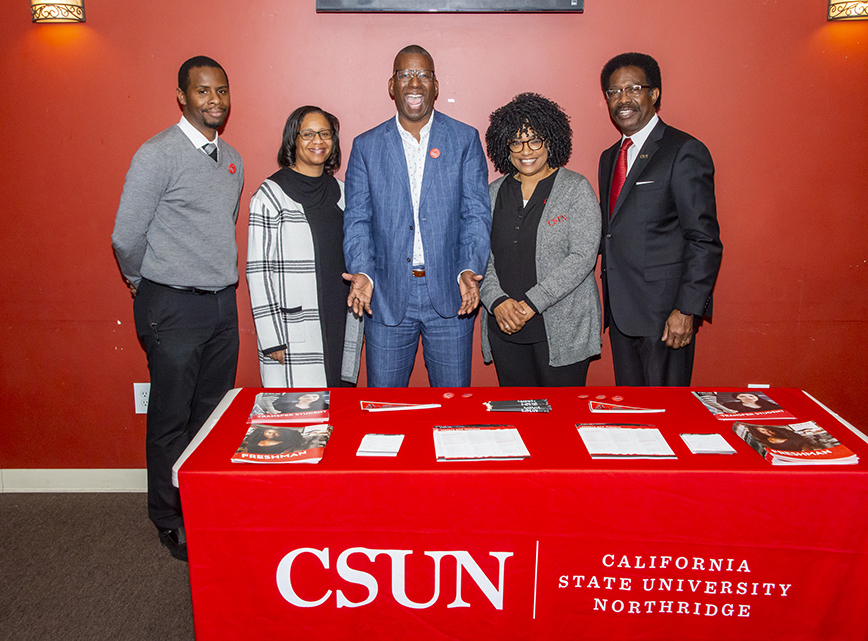‘Super Sunday’ Highlights CSUN, CSU Work to Increase Number of Black Graduates
There were fewer than 85 black students in William Watkins’ class when he graduated from California State University, Northridge in 1974. At the time, there were fewer than 800 undergraduate black students at CSUN.
That number is much higher now — 1,655 black undergraduates were enrolled at CSUN this fall. But speaking at H.O.P.E.’s House Christian Ministries in Granada Hills on Feb. 24, Watkins, CSUN’s vice president for Student Affairs and dean of students, alerted the congregation to a trend the university is working to reverse: The percentage of CSUN undergraduates who are black, which stood at 9 percent, or 2,732, in 2008, is down to about 4.7 percent.
More blacks than ever before are graduating from high school, and about two-thirds of black adults have attended some college, but almost fifty percent have not completed a degree, Watkins said.
“I share the numbers not to sadden you, but rather to rekindle, even in a congregation as forward-thinking as this, the insight and awareness that we are in a fight that requires our full attention,” Watkins said. “We must do more to produce college-going students.”
In an effort to increase the preparation, retention and graduation of African-American students, Watkins joined dozens of educators, administrators and alumni from the California State University (CSU) system who spoke to predominantly African-American congregations across the state for the annual event known as CSU Super Sunday. The first Super Sunday took place in 2005, with the CSU partnering with California churches that serve predominantly African-American communities, to connect with black families, prospective college students and parents.
Watkins’ message was a hopeful one, emphasizing that it’s never too early to prepare for college or too late to return. He underlined the importance of increasing the number of African-American college graduates while outlining tips to accomplish this goal. He was accompanied by outreach staff who answered questions about the accessibility of the CSU, admissions requirements, degrees offered and financial aid.
California is facing a shortfall of 1.1. million college degree holders for skilled jobs by 2030, according to the Higher Education Center of the Public Policy Institute of California. Increasing the number of black graduates will benefit the individuals and the state. The CSU’s ambitious Graduation Initiative 2025 — known at CSUN as Matadors Rising — aims to increase graduation rates for all CSU students while eliminating equity gaps.
Watkins said children should be encouraged to pursue knowledge and have a passion for learning in elementary school and even before.
“No child in our midst is too young to be encouraged to develop a thirst for learning and a quest to become something or do something meaningful with their life,” Watkins said.
It’s important that students be taught to ask for help, from educators who can help them succeed in the classroom or assist with applications and financial aid forms, as well as from adults in their personal lives, he said.
“When our students go off to college, guess what? They still need that encouragement and support,” Watkins said. “They must be reminded that they must work hard not to fall behind in their studies, to always suit up and show up, follow all the instructions and get things submitted on time, and have the courage to lead and be different.”





 experience
experience